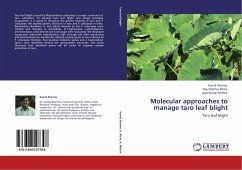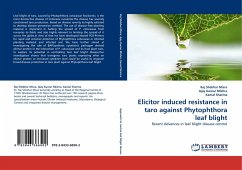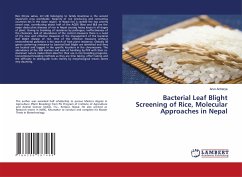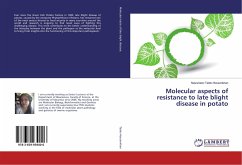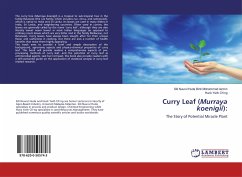Taro leaf blight caused by Phytophthora colocasiae is a major constraint to taro cultivation. To manage taro leaf blight and design breeding programme, it is crucial to recognize the genetic diversity of taro and P. colocasiae. We studied genetic structure of taro and P. colocasiae in India. Biochemical alterations in taro plants infected by the P. colocasiae were studied and changes in peroxidase, -1,3-glucanase, L-phenylalanine ammonia-lyase, total phenol and total sugar were evaluated. We employed suppressive subtractive hybridization, high through put DNA sequencing and bioinformatics to identify the defense related genes in taro induced by P. colocasiae infection. Two putative resistance genes and a transcription factor were identified among the upregulated sequences. Our study illustrated that identified genes will be useful to engineer disease protection in taro.
Bitte wählen Sie Ihr Anliegen aus.
Rechnungen
Retourenschein anfordern
Bestellstatus
Storno

